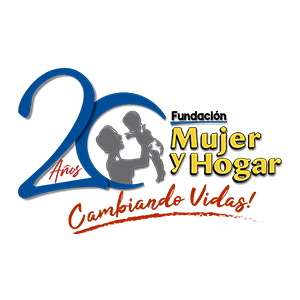Background Stroke is a leading cause of death and disability, especially in low-income and middle-income countries. We sought to quantify the importance of potentially modifiable risk factors for stroke in different regions of the world, and in key populations and primary pathological subtypes of stroke. Methods We completed a standardised international case-control study in 32 countries in Asia, America, Europe, Australia, the Middle East, and Africa. Cases were patients with acute first stroke (within 5 days of symptom onset and 72 h of hospital admission). Controls were hospital-based or community-based individuals with no history of stroke, and were matched with cases, recruited in a 1:1 ratio, for age and sex. All participants completed a clinical assessment and were requested to provide blood and urine samples. Odds ratios (OR) and their population attributable risks (PARs) were calculated, with 99% confidence intervals. Findings Between Jan 11, 2007, and Aug 8, 2015, 26 919 participants were recruited from 32 countries (13 447 cases [10 388 with ischaemic stroke and 3059 intracerebral haemorrhage] and 13 472 controls). Previous history of hypertension or blood pressure of 140/90 mm Hg or higher (OR 2·98, 99% CI 2·72–3·28; PAR 47·9%, 99% CI 45·1–50·6), regular physical activity (0·60, 0·52–0·70; 35·8%, 27·7–44·7), apolipoprotein (Apo)B/ApoA1 ratio (1·84, 1·65–2·06 for highest vs lowest tertile; 26·8%, 22·2–31·9 for top two tertiles vs lowest tertile), diet (0·60, 0·53–0·67 for highest vs lowest tertile of modified Alternative Healthy Eating Index [mAHEI]; 23·2%, 18·2–28·9 for lowest two tertiles vs highest tertile of mAHEI), waist-to-hip ratio (1·44, 1·27–1·64 for highest vs lowest tertile; 18·6%, 13·3–25·3 for top two tertiles vs lowest), psychosocial factors (2·20, 1·78–2·72; 17·4%, 13·1–22·6), current smoking (1·67, 1·49–1·87; 12·4%, 10·2–14·9), cardiac causes (3·17, 2·68–3·75; 9·1%, 8·0–10·2), alcohol consumption (2·09, 1·64–2·67 for high or heavy episodic intake vs never or former drinker; 5·8%, 3·4–9·7 for current alcohol drinker vs never or former drinker), and diabetes mellitus (1·16, 1·05–1·30; 3·9%, 1·9–7·6) were associated with all stroke. Collectively, these risk factors accounted for 90·7% of the PAR for all stroke worldwide (91·5% for ischaemic stroke, 87·1% for intracerebral haemorrhage), and were consistent across regions (ranging from 82·7% in Africa to 97·4% in southeast Asia), sex (90·6% in men and in women), and age groups (92·2% in patients aged ≤55 years, 90·0% in patients aged >55 years). We observed regional variations in the importance of individual risk factors, which were related to variations in the magnitude of ORs (rather than direction, which we observed for diet) and differences in prevalence of risk factors among regions. Hypertension was more associated with intracerebral haemorrhage than with ischaemic stroke, whereas current smoking, diabetes, apolipoproteins, and cardiac causes were more associated with ischaemic stroke (p<0·0001). Interpretation Ten potentially modifiable risk factors are collectively associated with about 90% of the PAR of stroke in each major region of the world, among ethnic groups, in men and women, and in all ages. However, we found important regional variations in the relative importance of most individual risk factors for stroke, which could contribute to worldwide variations in frequency and case-mix of stroke. Our findings support developing both global and region-specific programmes to prevent stroke. Funding Canadian Institutes of Health Research, Heart and Stroke Foundation of Canada, Canadian Stroke Network, Health Research Board Ireland, Swedish Research Council, Swedish Heart and Lung Foundation, The Health & Medical Care Committee of the Regional Executive Board, Region Västra Götaland (Sweden), AstraZeneca, Boehringer Ingelheim (Canada), Pfizer (Canada), MSD, Chest, Heart and Stroke Scotland, and The Stroke Association, with support from The UK Stroke Research Network.

































